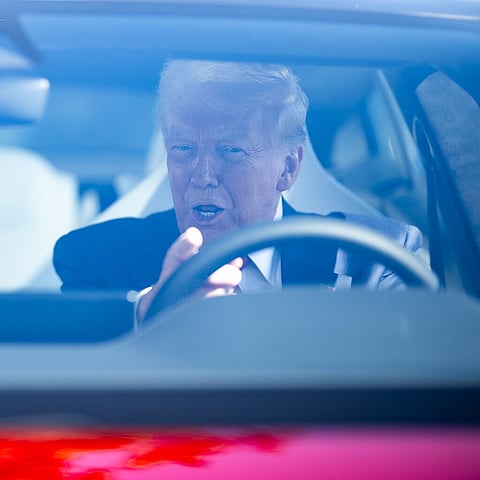

European sales of Tesla electric vehicles (EVs) plummeted by 49% in January and February compared to the same period last year, according to data from the European Automobile Manufacturers’ Association (ACEA).
The sharp decline comes as Tesla faces challenges from aging models and potential consumer backlash against CEO Elon Musk’s polarizing political stance. Musk, a vocal supporter of the U.S. President Donald Trump, has drawn criticism for his leadership of the newly formed Department of Government Efficiency (DOGE), a cost-cutting initiative that has sparked controversy.
In recent weeks, several Tesla dealerships in the U.S. have been vandalized, while the company’s stock price has tumbled. In Europe, Musk has openly endorsed far-right parties, including Germany’s Alternative for Germany (AfD), ahead of the country’s February elections.
Market Share Slips as EV Sector Grows
New Tesla registrations in the European Union fell to 19,046 in the first two months of 2024, giving the company just a 1.1% market share. In February alone, registrations dropped 47% to 11,743.
The slump contrasts with broader growth in the EV sector, where overall sales surged 28.4% to 255,489 vehicles, capturing 15.2% of the EU market.
BYD Surpasses Tesla in Revenue Amid Global Expansion
Meanwhile, Chinese automaker BYD has overtaken Tesla in annual revenue, reporting a 29% increase to 777 billion yuan ($107billion) in 2024 ,fueled by strong hybrid vehicle sales. Tesla, by comparison, posted 97.7 billion in revenue.
BYD, which sold 1.76 million EVs last year—nearly matching Tesla’s 1.79 million—also dominates the hybrid market, with a record 4.3 million vehicles sold globally in 2024. The company recently launched the Qin L, a lower-priced rival to Tesla’s Model 3, starting at 119,800 yuan ($16,500) in China—less than half the cost of Tesla’s base Model 3.
Additionally, BYD unveiled new fast-charging technology last week, claiming it can charge an EV in just five minutes, compared to Tesla’s 15-minute supercharger system.
The diverging fortunes of the two automakers highlight shifting dynamics in the global EV market, with Tesla facing political headwinds while Chinese manufacturers expand aggressively despite rising tariffs in Western markets.